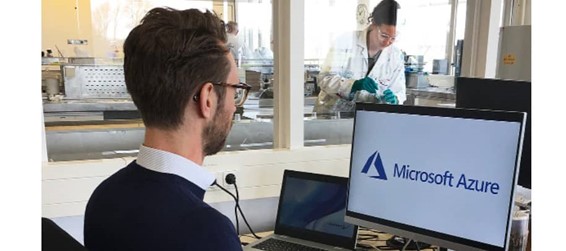Multinational AkzoNobel and Microsoft have teamed up to explore how quantum computing could help accelerate the development of high-performance, more sustainable paints and coatings.
Specifically, quantum chemical computing is capable of simulating chemical reactions with an unprecedented level of accuracy. To achieve new job opportunities, Microsoft and AkzoNobel will jointly explore how this can contribute to creating more advanced and sustainable products through research experimentation and development.
Specifically, scientists from both sides will jointly develop what will effectively be a virtual laboratory. The goal is to conduct experiments using quantum computing and other Microsoft Azure cloud services.
Klaas Kruithof, AkzoNobel’s chief technology officer, says, “This is a really exciting partnership that has the potential to be truly groundbreaking,” adding, “We are incredibly proud to partner with Microsoft and investigate how we can take our digital research to a new dimension. Innovation requires collaboration and this is a fantastic way for us to continue to push the boundaries so that we can make a sustainable and lasting difference for our customers and the planet.”
Matthias Troyer, distinguished scientist in Microsoft’s Azure Quantum program adds, “The promise of quantum computing and other Azure services to accelerate chemistry and materials problem solving and associated workloads is immense. We are delighted to partner with AkzoNobel to drive new value and generate world-changing impact.”
“Combining our track record of pioneering product development with Microsoft’s quantum and cloud computing expertise represents another major step forward in the digitization of our research,” explains Pim Koeckhoven, Chief Technology Officer in Research and Development at AkzoNobel.
“Until now, the quality of traditional computer simulations has not been up to par. Microsoft’s Azure Quantum system offers us incredible opportunities to take our research into a whole new digital realm and accelerate the development of new catalysts and chemical reactions,” he adds.
Among the various opportunities, quantum chemistry offers revolutionary industrial applications and possibilities. As an example, it could help overcome many of the practical limits associated with traditional laboratory methods, such as raw material availability, physical equipment capacity limitations, toxicity and environmental conditions. Therefore, it could drastically reduce the time it takes to find substitute ingredients to make more sustainable products, with new functionalities or to replace scarce raw materials.









